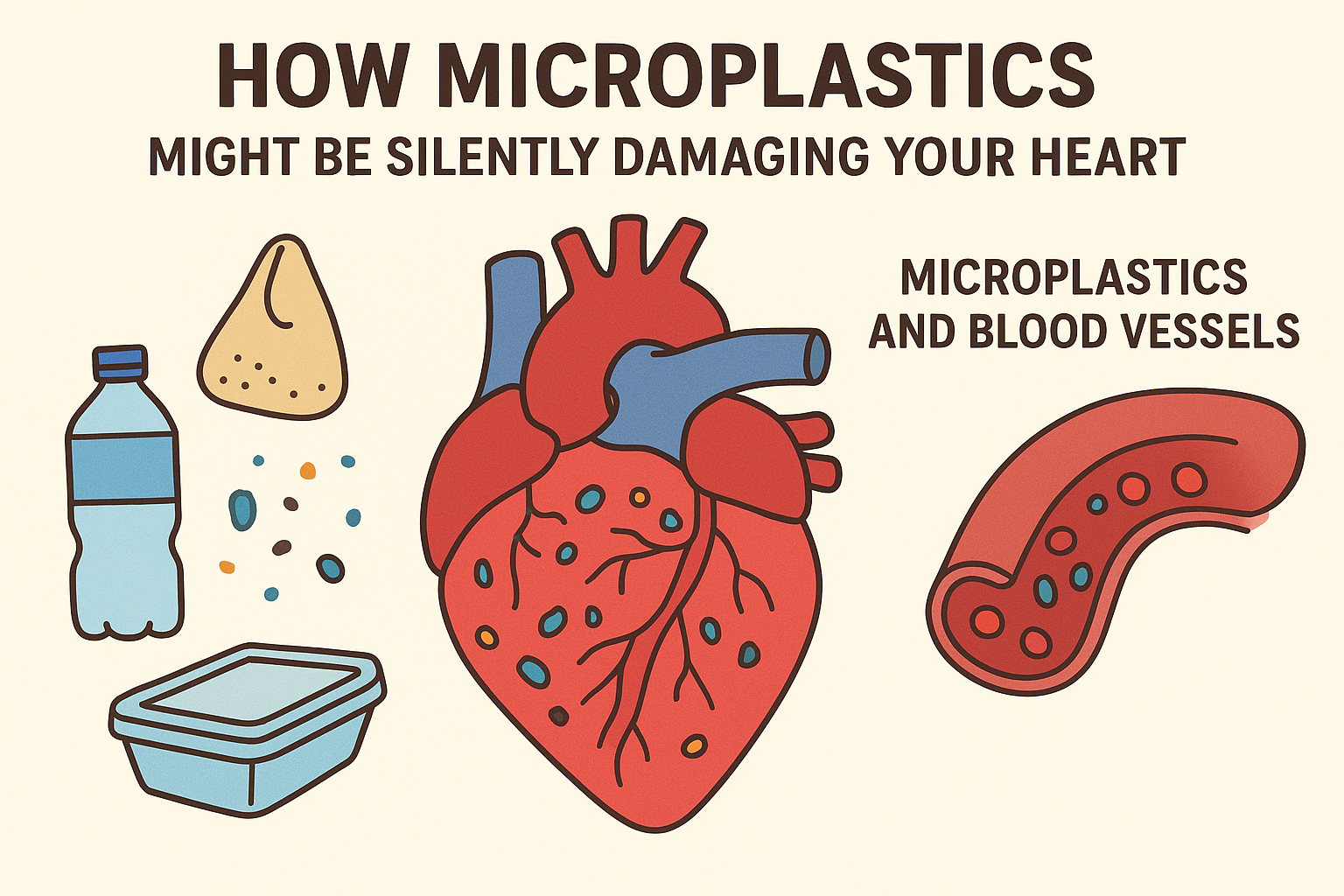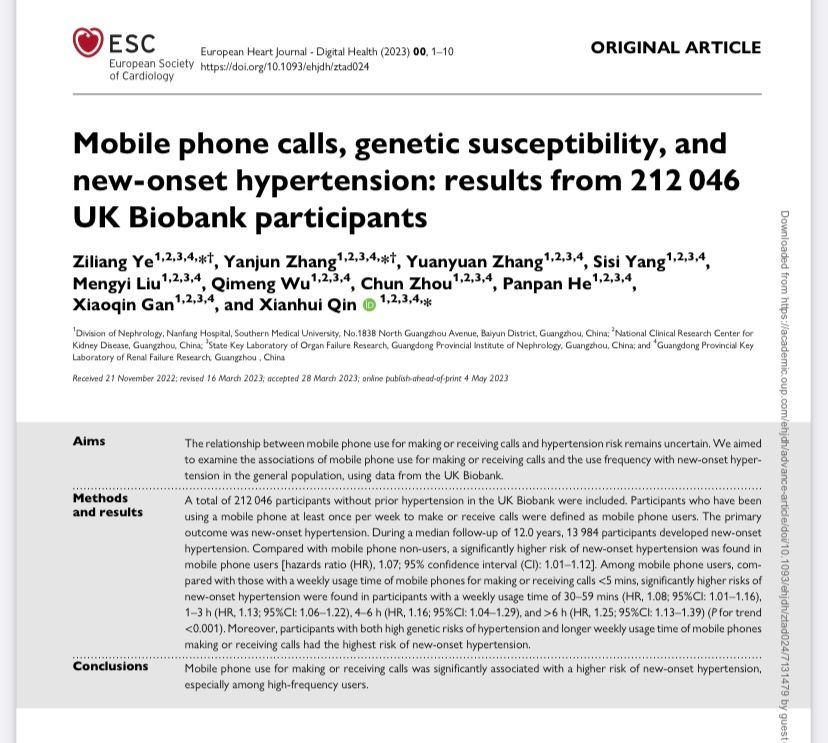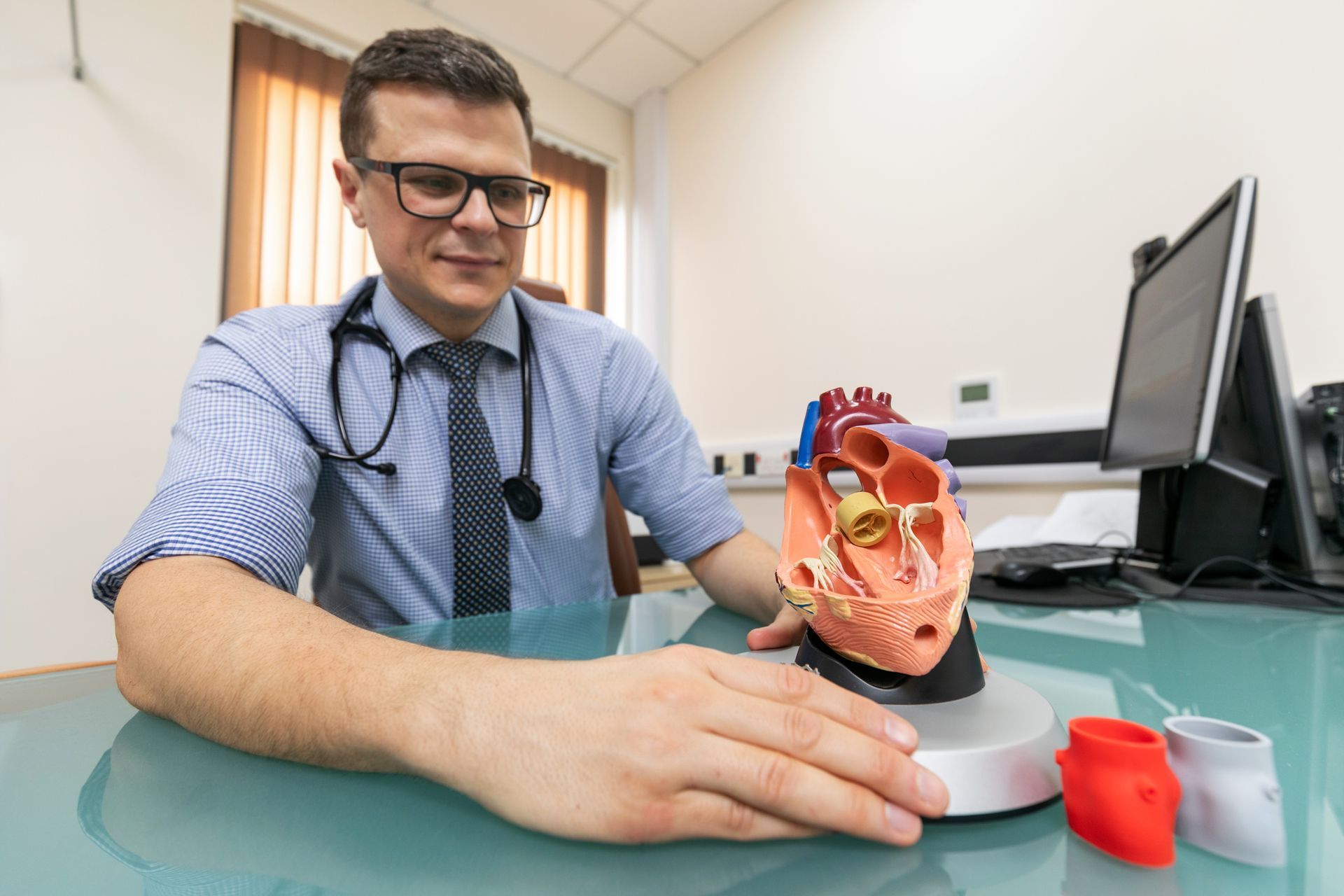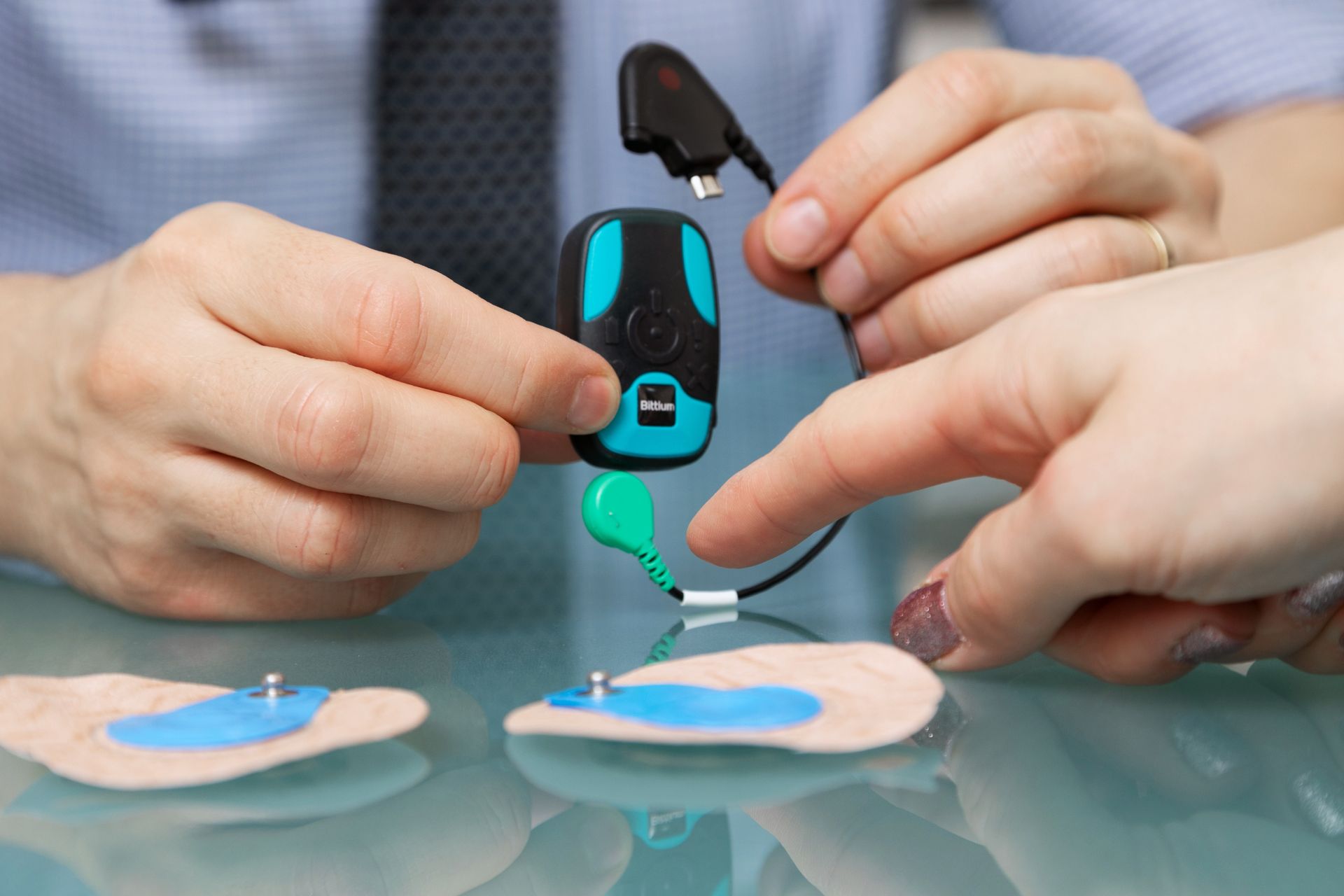Mobile phones and risk of High Blood Pressure.
Using MOBILE PHONES (making or taking calls) is associated with an increased risk of High BLOOD PRESSURE🫀(HYPERTENSION), according to this study (abstract above).
- WEEKLY usage (phone calls) of OVER 30 MINS was found to be linked to signficantly higher risk of developing HYPERTENSION.
- Compared to phone calls of <5mins, 30-59 mins (HR 1.08), 1-3hrs (HR 1.13), 4-6hrs (HR 1.16), >6hrs (HR 1.25), (p<0.001 for trend)
- It was a large, observational data, which was published recently, on the 4th of May 2023, in European Heart Journal - Digital Health.
- Over 200 000 individuals with no prior diagnosis of High Blood Pressure were included, from UK Biobank database.
- Follow up lasted 12 years (median) and nearly 14 000 participants developed High Blood Pressure in this time frame.
- The authors concluded: 'Mobile phone use for making or receiving calls was significantly associated with a higher risk of new-onset hypertension, especially high-frequency users.'
Link to full article below:
https://academic.oup.com/ehjdh/advance-article/doi/10.1093/ehjdh/ztad024/7131479?searchresult=1&login=false
Mobile Phones and Heart Health
Introduction
In today's digital era, mobile phones have become an integral part of our daily lives, transforming the way we communicate, access information, and navigate the world. However, concerns have arisen regarding the potential impact of mobile phone use on heart health. In this article, we
will explore the relationship between mobile phones and heart health, examining the scientific evidence, dispelling myths, and highlighting the importance of consulting with a specialist, such as a private cardiologist, for accurate information and personalised guidance. With access to specialised heart hospitals and clinics in Winchester and Basingstoke, individuals can make
informed decisions about mobile phone use and prioritize their cardiovascular well-being.
Main Text
Electromagnetic Fields and Mobile Phones
Mobile phones emit electromagnetic fields (EMF), which have raised concerns about their potential effects on the cardiovascular system. EMF exposure has been a subject of
scientific investigation, but the existing evidence does not support a direct link between mobile phone use and adverse cardiovascular outcomes.
Mobile Phones and Heart Rhythm Disorders
One area of concern related to mobile phone use is the potential association with heart
rhythm disorders, such as atrial fibrillation. However, large-scale studies have failed to establish a clear causal relationship between mobile phone use and increased risk of arrhythmias. Individuals with pre-existing heart conditions should consult with a cardiologist in Basingstoke or Winchester to address any specific concerns and receive personalised recommendations.
Mobile Phones and Blood Pressure
Some studies have explored the effects of mobile phone use on blood pressure, one of them is
described above.
Balancing Mobile Phone Use and Heart Health
While the evidence suggests that balanced mobile phones use are unlikely to directly harm
cardiovascular health, it is important to maintain a balanced approach to mobile phone use. Excessive reliance on mobile phones can contribute to sedentary behaviours, reduced physical activity, and disrupted sleep patterns, all of which are risk factors for cardiovascular disease. Establishing healthy habits such as regular exercise, minimizing screen time, and prioritizing sleep can positively impact heart health.
Consulting with a Specialist for Personalised Guidance
If individuals have specific concerns about their heart health, it is recommended to consult with a heart specialist, such as a private cardiologist in Winchester or Basingstoke. Our heart specialist at Sarum Road Hospital in Winchester or at Candover Clinic in Basingstoke can provide accurate information, assess individual risks, and offer personalised guidance based on a comprehensive evaluation.
Conclusions
The relationship between mobile phone use and heart health is complex, and the existing scientific evidence, such an article showed that receiving and making phone calls has an impact on blood pressure levels. While concerns also exist regarding mobile phone radiation and its impact on heart health, the current consensus suggests that the levels of radiation emitted by mobile phones are unlikely to cause harm. However, it is important to strike a balance between mobile phone use and maintaining a heart-healthy lifestyle, including regular exercise, limited
screen time, and adequate sleep.












